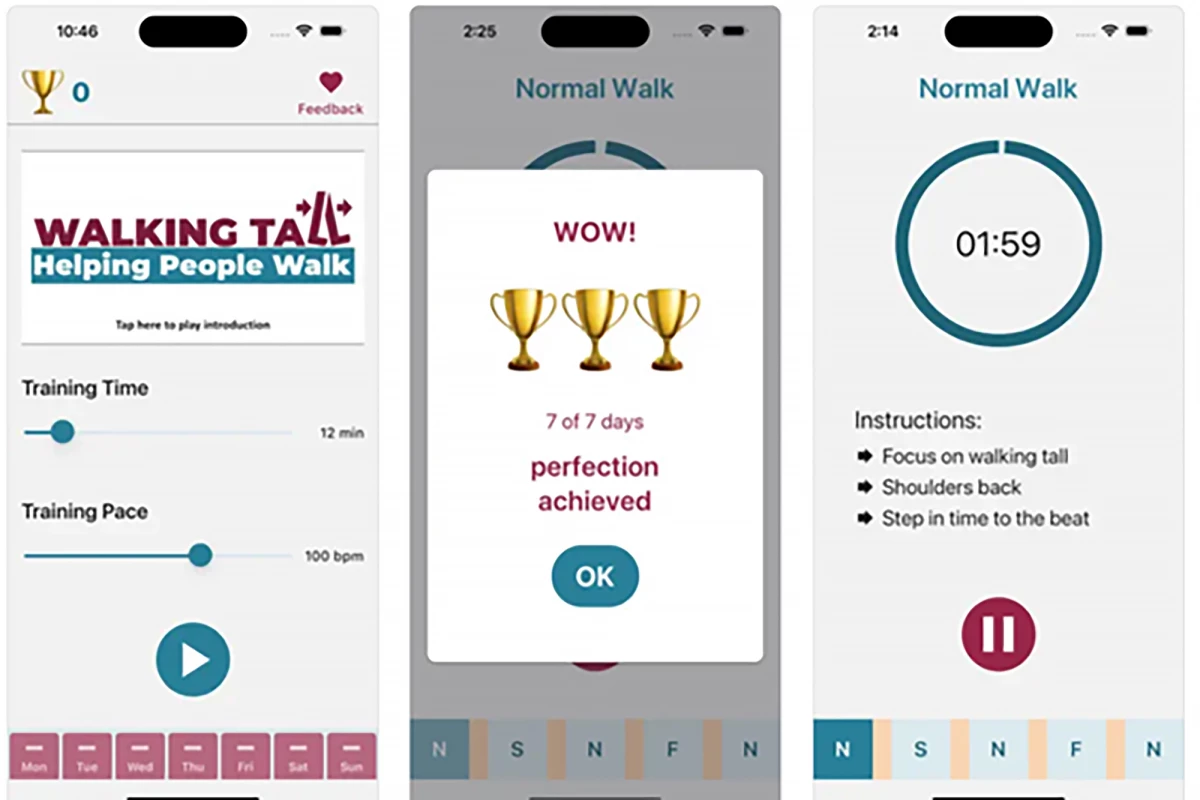For people with Parkinson’s disease, the simple act of walking can require constant mental vigilance to maintain balance and avoid falling, which is exhausting. Researchers have now developed a free smartphone app that helps people with Parkinson’s improve their gait and coordination and reduce the likelihood of falls, all while providing important exercise.
Renowned as the ‘feel good’ chemical, dopamine is also heavily involved in controlling body movements. The reduced dopamine levels seen in Parkinson’s disease can lead to its characteristic short, shuffling gait, incoordination, and the feeling that one’s feet are stuck to the floor, known as ‘freezing.’ This, combined with the poor balance caused by the disease, places people at risk of falling, and having to concentrate intensely on walking without falling over can be mentally exhausting.
Researchers at the University of New South Wales Sydney have developed a smartphone app called Walking Tall that helps people with Parkinson’s to walk better for longer.
“Those who live with Parkinson’s disease have to think about every single step they take,” said Matthew Brodie, who led the app development team. “We asked them how much mental effort it takes for them to walk, and often they would say 100%.”
Co-designed by people living with the progressive disorder, the app is a re-training tool designed to trigger movement by delivering a metronomic beat for three different walking speeds. It puts control into the hands of the user, allowing them to set their own training time and pace.
“With the metronome beat of the app the aim is to replace the need to think about walking and help with the timing of the steps,” Brodie said. “This app can give people confidence and also a sense of achievement that they can be empowered and do something for themselves to help their own condition.”
The researchers tested their app in clinical trials on 62 people. Half used the Walking Tall app, and half used an existing walking program called the Otago Exercise Program (OEP), which includes leg muscle strengthening and balance retraining exercises designed specifically to prevent falls. After 13 weeks, the researchers found that those following the OEP were exercising for around 60 minutes a week on average, whereas those using the app were doing 150 minutes. The results of the trial will be published in due course.
“The feedback we got from the trials is that the people who used the app really liked the simple metronome beat via their phone that helped to stabilize their gait,” said Brodie. “The app lowers the barriers for people with PD [Parkinson’s disease] to train themselves to walk. We say to them that doing as little as six minutes a day, three days a week, will still help.”
In addition to providing useful reminders like “shoulders back” and “focus on big steps,” the app provides users with motivation they can hear.
“We also give them audio encouragement in the app and you can even ‘earn’ a gold cup if you complete the training over a number of days,” Brodie said. “All of that is another motivator for people.”
The researchers say that the app was designed as something people with Parkinson’s disease can use now to get results.
“My goal in terms of my research is to have an impact now, not an impact in 10 years’ time,” Brodie said. “And I believe this app can help people with Parkinson’s disease all around the world right now.”
The Walking Tall app can be downloaded for Apple and Android devices for free.
Source: University of NSW Sydney





